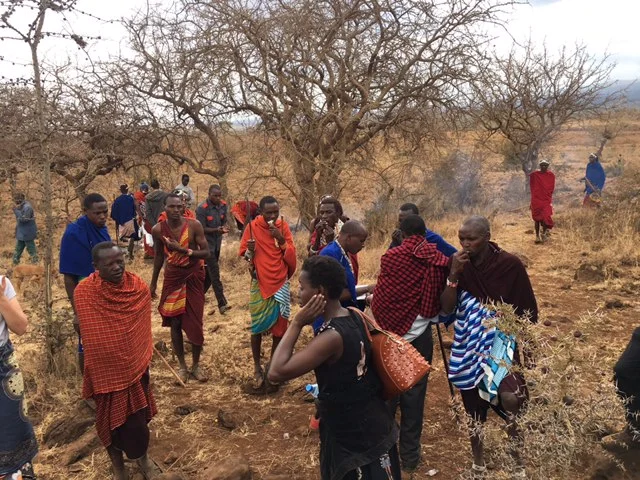Kilimanjaro - Care for africa
20 steps, stop, take a big breath and go again. It’s summit day and we’re three hours in to our six hour ascend and fifteen hour day. We have been going since midnight and have been away from civilisation for the past week. No one is aware of the AFL Grand Final scores played just days before, just a text saying “Go Doggies”. It is merely seventeen trekkers and fifty-eight porters taking one step at a time to the ‘Roof of Africa’.
This trip had a twist to all other ProSport adventures. I didn’t know the group well and they were all interstate. It came from a conversation with my Aunty who is a founder of Care for Africa at Christmas time. Care for Africa is a not-for-profit organisation surrounding themselves in Tanzania for the past ten-years.
Kerbosere is a small village in the Tarime District along the Mwanza coast line. Home to approximately 4,000 natives who struggle to put together sentences in Swahili let alone English, currently walk 16km to parasite infested water-wells and don’t know anything about the world of education or the relentless malaria. This was all about the change, thanks to these seventeen trekkers.
Over $100,000 has been raised to implement the ProSport water-well, build an early learning education centre, pay for a teacher and resources whilst also providing funds for private health care. It’s amazing what can be achieved when like-minded people butt heads together and decide to do something. All this was being installed with volunteer and local builders at work whilst we were slugging our bums up the mountain.
I could write this summary from multiple angles. I could talk about the challenges and difficult emotions and stresses each and every trekker goes through when attempting Kilimanjaro. And I could also take the angle of the euphoria, feeling of ecstasy and desperation for breath when you reach the summit. But I’m going to talk about the Tanzanian people and the lengths they go to getting the ‘rich’ white people up the mountain.
Ask any of the Tanzanians along the street if they have any interest in climbing Kilimanjaro. I am yet to meet one. Us Westerners go to extraordinary lengths to tick off bucket lists. New York Marathon, Kokoda, London, Kilimanjaro. We have the ability to go anywhere in the world. Does this make us selfish? Are we too adventurous or do we just lead completely different lives and have alternate understandings to those of the third world countries, I suspect the latter...
Climbing Kilimanjaro is something, no matter how fit you are or what previous experiences you’ve had will push your limits and ego. I had an 83-year old man, the third oldest person to attempt Kilimanjaro. He came, he trained and although he was turned around at 5,350m, he summited in his own way. He is a man of wisdom and his final comment as we sipped our Kilimanjaro beer back in Moshi “I don’t know why these people do it”. Asked if he’d attempt anything like this again, he responded saying “it’d be physically impossible and morally wrong”. I couldn’t help but laugh. Our porters lives are different and they will do anything for a crust. What a great way to reflect on how lucky we are to be Australian and live where we do. Maybe its a subtle reminder to myself to realise how lucky I am, is anything really that hard? Or do I make it sound harder than it really is?
The comraderie between the porters and guides is second to none, they are the most caring people you can meet. I had two porters suffer from high altitude sickness and as I sent them back down the mountain, they looked after each other with affection and care by walking together holding hands, not one weird look, just normality.
Seventeen anxious, nervous and excited trekkers started the trek. Seventeen tired, rewarded and experienced trekkers left the mountain. What we take with us is a new experience. Life is not always about how much money you take home in a day, it can be about what new friend you made or what act you did to help someone. I honestly believe deep down, they are happier people than we are. One week in a vast environment can change one life forever and while we may have changed the lives of 4,000 people from Kerbesere, I dare say that they have changed the seventeen lives who trekked Kilimanjaro a little more.


